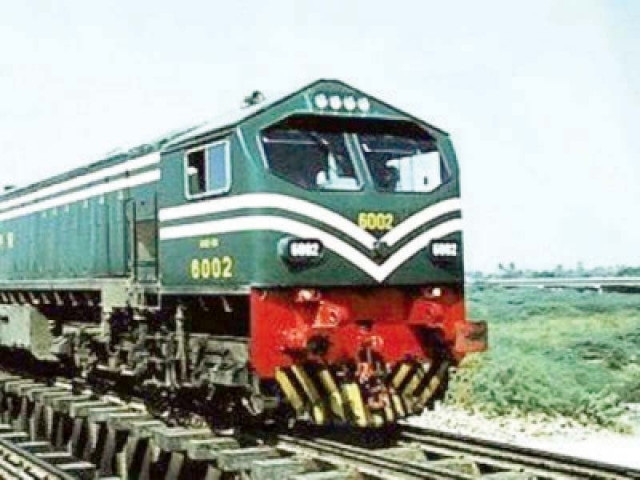CDWP okays 45% rise in ML-I cost
Seeks third-party validation of cost escalation, submission of business plan

Days before Prime Minister Shehbaz Sharif’s visit to China, Pakistan has conditionally approved 45% increase in the cost of Mainline-I project to nearly $10 billion amid questions over some calculations including the rupee-dollar parity.
The Central Development Working Party (CDWP) – the first tier for approval of mega development schemes – on Wednesday cleared the ML-I project for final endorsement by the Executive Committee of National Economic Council at a cost of $9.9 billion, according to the Ministry of Planning officials.
While clearing the project, the largest China-Pakistan Economic Corridor (CPEC) scheme, the CDWP directed the Ministry of Railways to review its cost and prepare a business plan.
“CDWP has given instructions to get third-party validation of the overall 45% escalation in cost and to submit a business plan within one week,” said Planning Minister Ahsan Iqbal.
The minister said that he had also directed the railways ministry to create provisions for environment-friendly electric locomotives, as running diesel-based locomotives would not be viable.
The railways ministry had been asked to implement the project in phases and stagger a loan of $8.4 billion accordingly to ensure smooth construction and at the same time book loans as per need, said Iqbal.
Out of the cost of $9.9 billion, Pakistan has planned to take a loan of $8.4 billion from China, although it has not been able to finalise negotiations. Islamabad will arrange the remaining $1.5 billion.
In rupee terms, the project cost is a staggering Rs2 trillion. Due to negligence of the Pakistan Tehreek-i-Insaf (PTI) government, the ML-I project remained in cold storage and as a result its cost in rupee terms increased multiple times, said Finance Minister Ishaq Dar on Wednesday.
CDWP gave its stamp of approval almost two weeks before PM Sharif’s visit to China. The premier will seek the concurrence of China’s National Railway Administration to start bidding process for the project. Islamabad is keen to perform the groundbreaking ceremony of the project on March 23, 2023.
During the PM’s visit, Pakistan will propose the signing of a joint memorandum, indicating the timelines of project milestones, according to an official of the Ministry of Planning.
Under the project, a 1,733km-long route will be rehabilitated, 482 underpasses, 53 flyovers, 130 biker bridges and 130 stations will be constructed along the route.
ML-I starts from Karachi, passes through Kotri/ Hyderabad, Rohri, Multan, Lahore, Rawalpindi and terminates in Peshawar.
However, project documents showed that even the nearly $10 billion cost was understated, as the Ministry of Railways had used a four-month-old exchange rate of Rs200 to a dollar. At today’s exchange rate, the project cost is understated by Rs190 billion, or about $856 million.
The Ministry of Railways got the project approved as a “modified PC-I” aimed at providing room for further 15% increase in various heads.
Ecnec had approved the ML-I project in August 2020 at a cost of $6.8 billion, including a $6 billion Chinese loan. But the project could not reach the groundbreaking stage due to disagreement over loan terms and China’s objections to the cost of the scheme.
CDWP has now approved the cost of $9.9 billion, a surge of over $3 billion, or 45%. The increase has been approved for all three packages of the project that are planned to be constructed from 2023 to 2031.
Pakistan and China had signed a framework agreement in 2017 to complete the ML-I project under CPEC as a strategic scheme. However, the PTI government could not convince China and the International Monetary Fund (IMF) for starting construction work.
In April this year, Pakistan again requested China to consider financing the ML-I project, which had a price tag of $6.8 billion five months ago. In April, the Ministry of Railways said “PC-I of the ML-I project was not feasible as costs were not agreeable to the Chinese side”, showed the documents.
So far, nine meetings of the financing committee have been held but Pakistan has not been able to secure a deal from China.
CDWP considered a separate PC-I at a cost of Rs36 billion for the provision of security for the ML-I project.
More than 80% of the revenue generated by the Pakistan Railways comes from trains operating on ML-I.
In 2020, Ecnec had directed the Railways Ministry to prepare and implement the governance and managerial reforms for execution and operation of ML-1 within two years. But Pakistan Railways could not hire an international firm in the past two years to finalise a plan.
The Ministry of Railways has justified the increase on the grounds that the cost of almost everything has increased in past two years, including labour cost, cement, sand, gravel, steel Bars & other steel items, HSD Oil, rails, concrete sleepers, fastening system, turnouts and optical cable.
Published in The Express Tribune, October 20th, 2022.
Like Business on Facebook, follow @TribuneBiz on Twitter to stay informed and join in the conversation.



















COMMENTS
Comments are moderated and generally will be posted if they are on-topic and not abusive.
For more information, please see our Comments FAQ